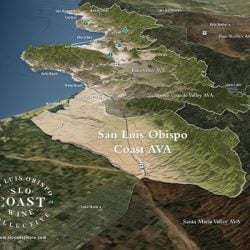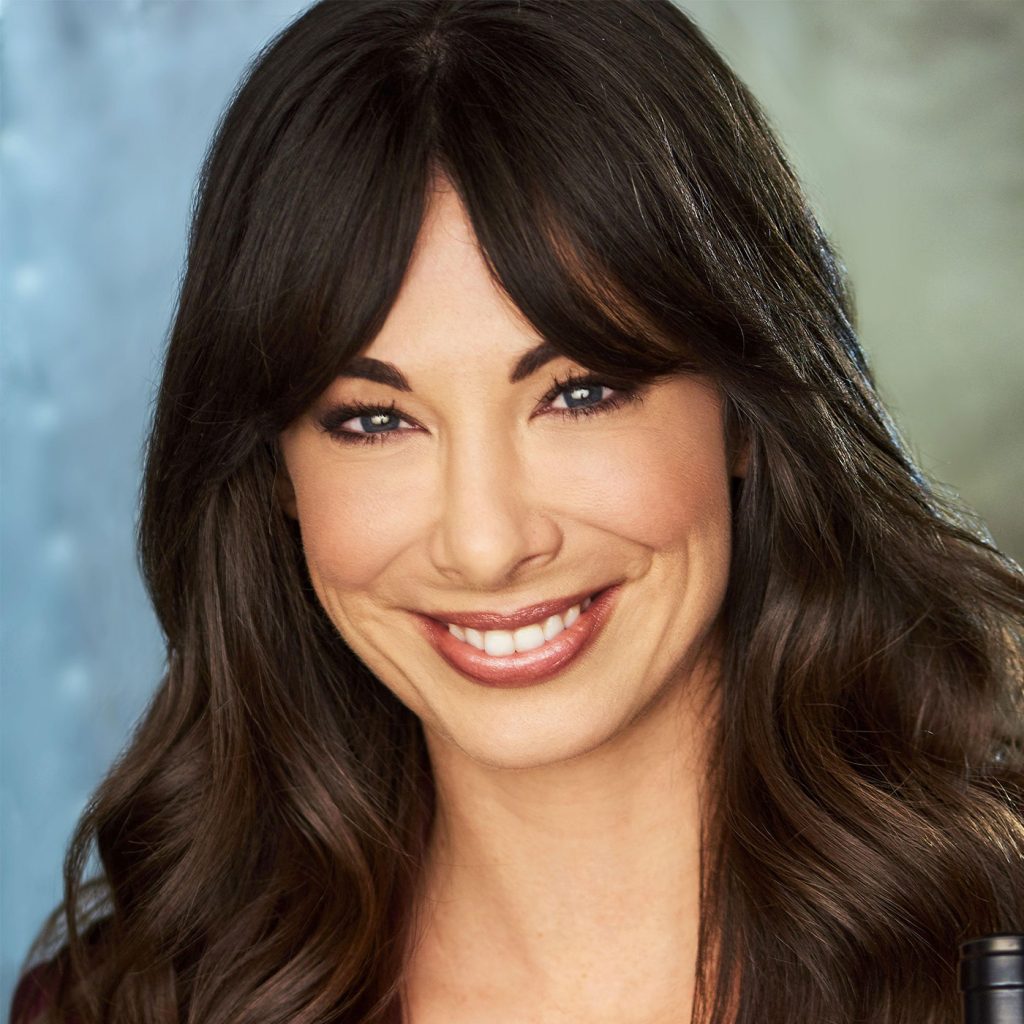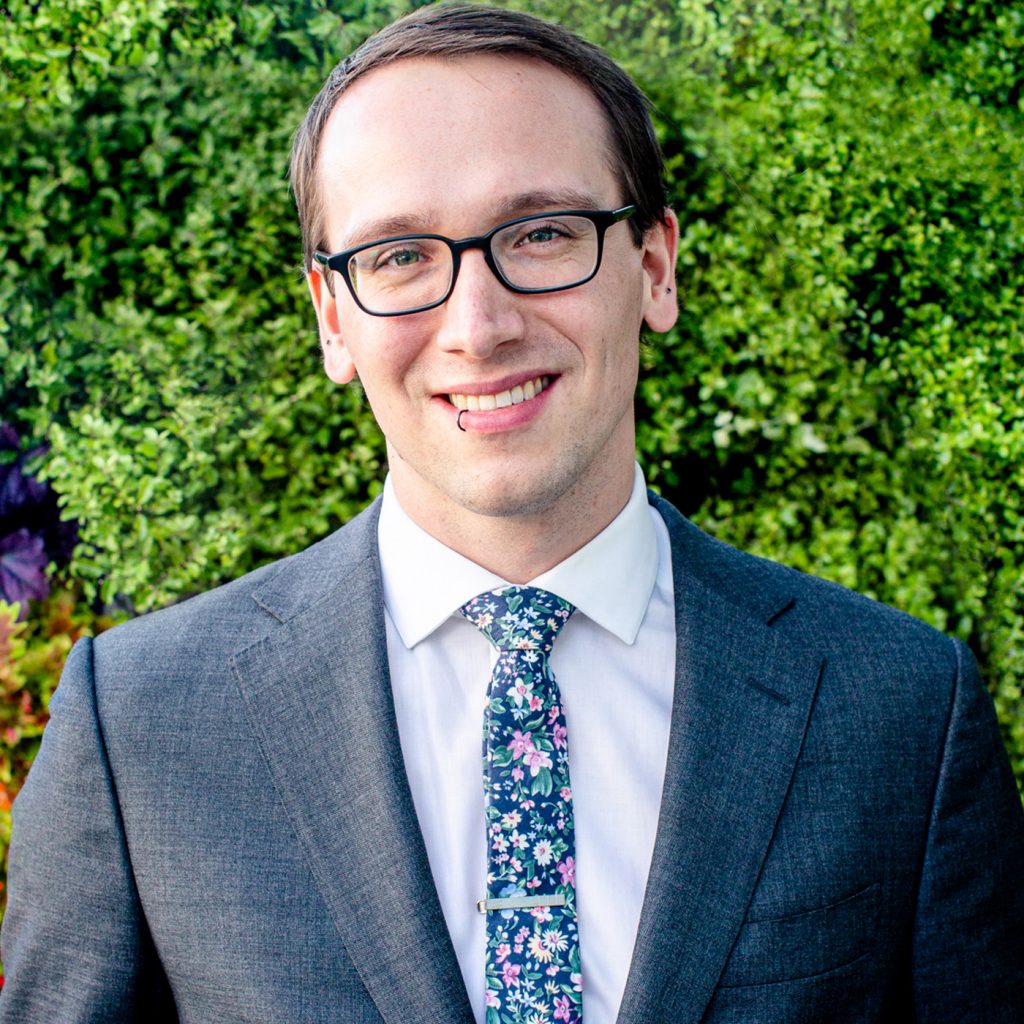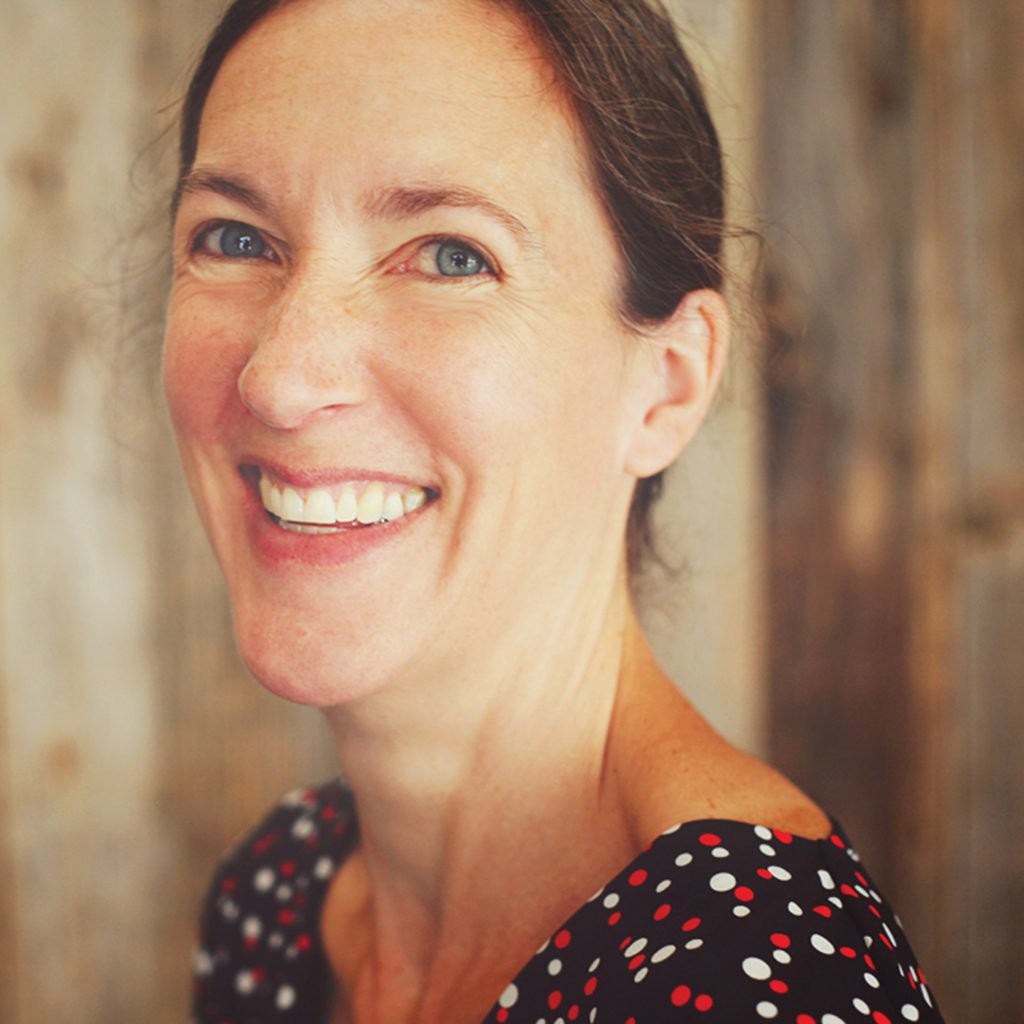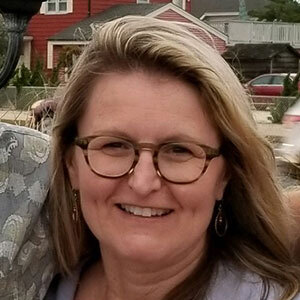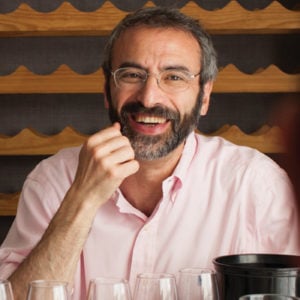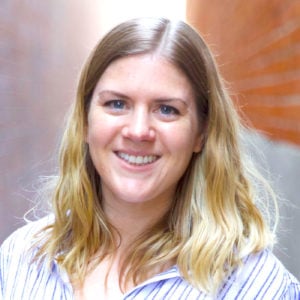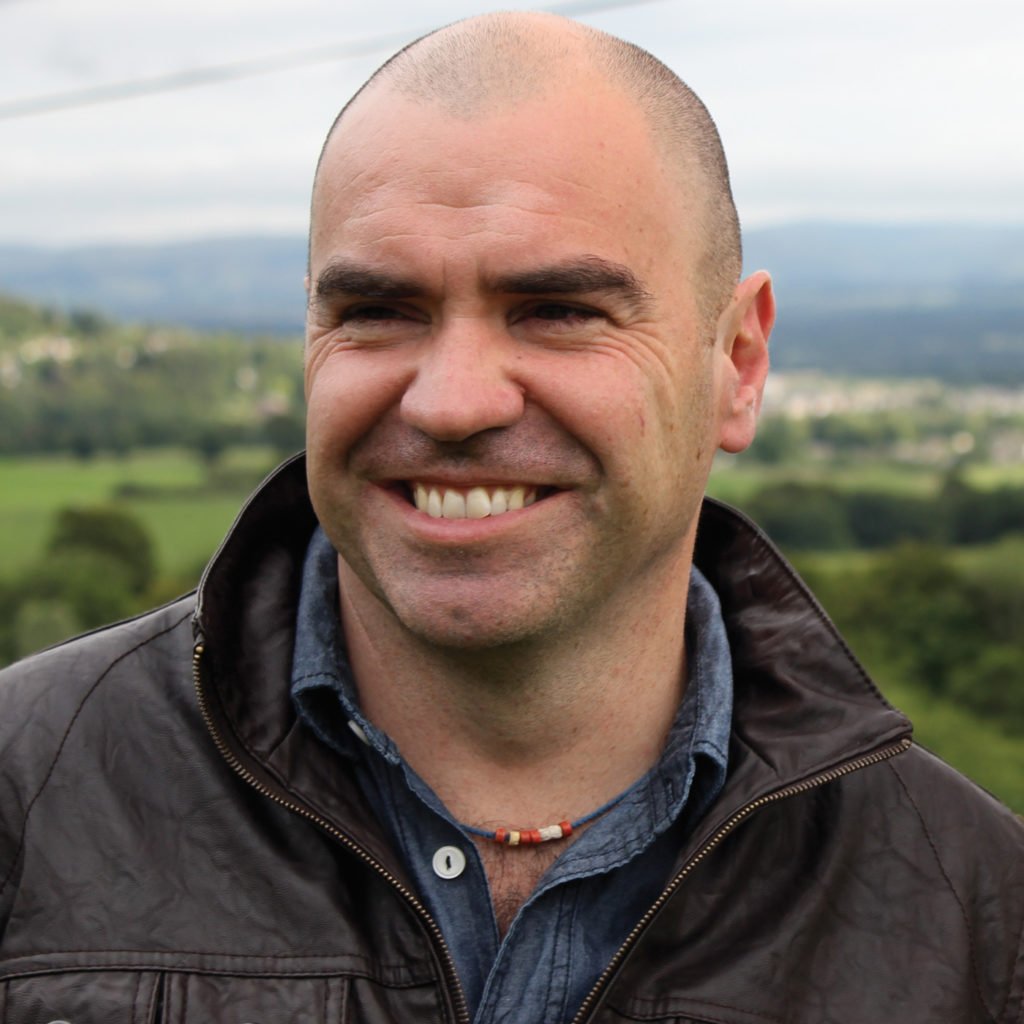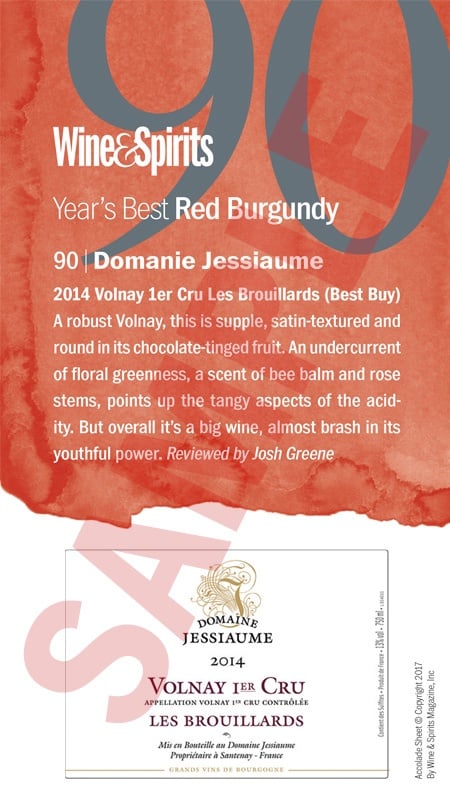On a spring day in 2018, Tablas Creek winemaker Neil Collins drove from Paso Robles to Ventura, California, to attend a dinner at Paradise Pantry, a locavore-driven restaurant. That evening they were serving biodynamically raised lamb culled from Tablas Creek’s working herd of weed- and cover crop–munchers. There, Collins met Yvon Chouinard, the founder of Patagonia, the outdoor-clothing company, and a vociferous advocate for organic farming.
Collins, who’s more of a Carhartt guy, admits that he’d never really been much of a fan of Patagonia, a brand he referred to as “Patagucci,” though his viticulturist, Jordy Lonborg, was a massive enthusiast, as was his son, an avid rock climber.
Within ten minutes of meeting, Collins and Chouinard were deep in conversation about saving the planet. For Chouinard, the first step was to upend existing agricultural practices. “He said, ‘The only way we’re going to change the climate is if we change the way we farm,’” Collins recalls.
The discussion moved on to regenerative organic agriculture, a comprehensive organic practice Patagonia was implementing in its cotton contracts; it had also taken the first steps toward codifying the practice with a governing body. At the end of the dinner, Collins asked about getting involved. A few months later, the Regenerative Organic Alliance (ROA) asked Tablas Creek to be its pilot winery.
ROA is spearheaded by the Rodale Institute in Kutztown, Pennsylvania, and two companies devoted to environmentally conscious capitalism, Patagonia and Dr. Bronner’s, most famous for its castile soap. ROA’s approach is designed to reverse the effects of industrial farming by advocating practices that improve soil health, incentivize carbon sequestration and treat animals and humans humanely.
“Right now, today’s farming paradigm is a chemical system,” says viticulturist Paul Dolan, who serves on ROA’s board. “It’s organized around chemical remedies and synthetic inputs in order to function. Regenerative organics and biodynamics are biological systems: it’s farming in the service of life, the life of the farmer, the workers, the soils, the microbes, the plants and animals they grow, the consumers who eat them.”
ROA uses existing standards, like USDA Organic, Certified Humane and Fair Trade USA to serve as compliance rungs toward Regenerative Organic Certification, and then relies on on-site audits by existing certifying bodies like QCS, Ecocert and Mayacert to confirm compliance to the remaining criteria. There are currently three tiers of certification: bronze, silver and gold.
Collins had little trouble convincing Jason Haas, Tablas Creek’s general manager and son of its founder, Robert Haas, to take this on: “We’re always looking for ways to move forward,” says Haas. “This one was easy.” Tablas Creek was already a Demeter-certified property and well along in its compliance for agricultural practices and animal care (the property maintains a herd of about 200 sheep, as well as bees, alpacas, donkeys, chickens, sheep dogs, herding dogs and winery dogs. (“We like dogs,” says Lonborg.) Nathan Stuart has been employed as the property’s full-time shepherd and animal steward since 2016.
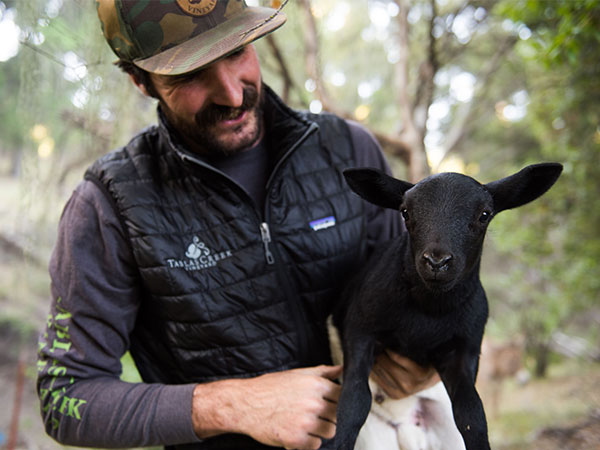

Much of the agricultural compliance fell to Lonborg and his vineyard manager, David Maduena. Since Tablas Creek was the pilot winery, feedback was a vital part of the trial. Lonborg found the biggest stumbling block to be ROA’s emphasis on notill farming, a challenge in the semi-arid climate of Paso Robles. “I can guarantee you that in Pennsylvania they don’t have the sort of vertebrate pest issues we have,” says Lonborg, referring to his year-round battle with gophers. Nor do they have star thistle, an invasive weed with thorns strong enough to puncture a tractor tire.
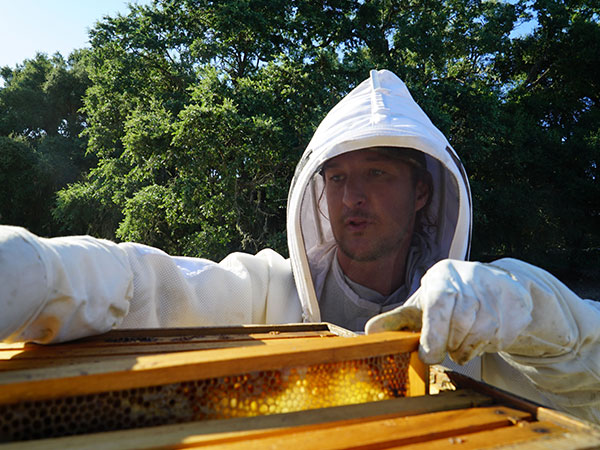

For Collins and Lonborg, the most inspiring part of the process was ROA’s human pillar. “Labor is the dark side of agriculture,” says Lonborg. “Not so much in the wine industry, but up and down the West Coast these people get taken advantage of.” His 12-member crew, many of whom have been with Tablas Creek for the better part of two decades, participated in teambuilding exercises and roundtable discussions, opening new channels of communication with the winery management and owners, addressing grievances and improving farming systems and workflow.
“They’re just not used to communicating at this level,” says Collins. “Culturally they’re trained to deal with a boss and not question anything. When we started asking them how we could improve their lives, I think it blew their minds a little; we broke down a lot of barriers.”
Once this work had been completed, Lonborg’s next task was to find a certifying body willing to consider a work force that wasn’t in the hundreds. They opened talks with the Equitable Food Initiative (EFI), an organization accustomed to dealing with large operations. “We reminded them that the majority of farms on the planet are small.” says Lonborg.” It kind of got them thinking differently. In the end, they created a pilot program just for us.” In July of this year Tablas Creek successfully completed its trial, and became the world’s first certified–Regenerative Organic wine property.
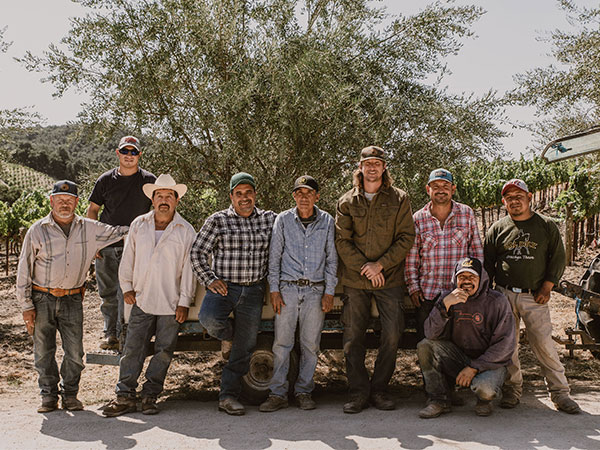

It’s not likely to be the last. Several growers have reached out to Tablas Creek and to the Alliance to inquire about certification—wineries such as Radio-Coteau, Frog’s Leap, Sea Smoke and Villa Creek in California, and Troon Vineyards and Hope Well Wines in Oregon. Vanya Cullen in Margaret River has inquired, as have representatives of Cullen’s importer, Old Bridge Cellars, on behalf of its other wineries who are in step with the practices.
All of these properties are organic; some are biodynamic. Most are already partway down the path of Regenerative Organic certification; indeed, Collins points out that it wasn’t wine that got them to the table, it was sheep. “At the time, I think we were the only purveyors of biodynamically raised lamb in the world,” he says. “It got us in the door.”
Eric Sussman of Radio-Coteau says he can’t wait to get started. “Regenerative Organic farming falls in line with what we do,” he says, “along with biodynamics and non-interventionist winemaking, with goals of transparency and intention. We’re small fish, but these practices are at the core of our values, and our mission.”
Patrick J. Comiskey covers US wines for Wine & Spirits magazine, focusing on the Pacific Northwest, California’s Central Coast and New York’s Finger Lakes.
This story appears in the print issue of December 2020.
Like what you read? Subscribe today.


